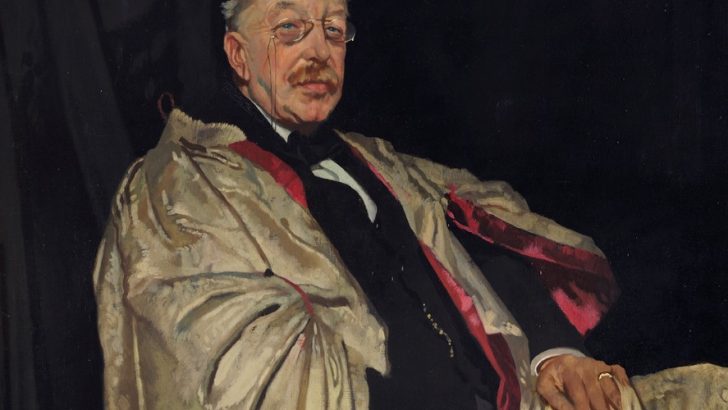In my previous column, I left Charles Villiers Stanford as deputy organist of Trinity College, Cambridge in 1873. He was promoted the following year but before accepting the principal post stipulated that he be allowed to study in Germany during the next two summers. Cambridge agreed and Stanford went to Leipzig.
It didn’t work well. Disliking his conservative professor, Carl Reinicke, Stanford later commented, “of all the dry musicians I have ever known he was the most desiccated”. On a brighter Leipzig note, he met English singer Jennie Wetton. They married in 1878.
Back home Stanford was advised to try the highly regarded Friedrich Kiel in Berlin’s Hochschule für Musik. He did and described the agreeable Kielas “a master at once sympathetic and able… I learned more from him in three months than from all the others in three years”.
Returning to Cambridge again Stanford resumed his duties at Trinity, writing “some highly distinctive music” for its choir. He also assumed the college Musical Society’s baton, introducing many new works, among them Brahms’ German Requiem. Conducting the British première of Brahms’ First Symphony brought him national acclaim, raising his status further in Britain’s musical life.
In the early 1880s Stanford played an important role in establishing London’s Royal College of Music (RCM), giving invaluable assistance to its founder/director, George Grove.
In full agreement with Grove’s progressive ideals, the latter appointed Stanford his professor of composition – a position he held until his death. During his time there he taught many future famous composers including Gustav Holst and Ralph Vaughan Williams.
Supervision
Stanford also placed an indelible mark on organising the RCM’s vocal department, supervising and conducting 32 opera productions during his tenure. As an aside, the workaholic Stanford was conductor of London’s Bach Choir, the Leeds Philharmonic Society and that city’s Triennial Festival.
Realising his diverse capabilities, Cambridge appointed Stanford its professor of music in 1887 and he was later honoured with doctorates from it, Oxford and TCD. He was knighted in 1902.
Between all this activity Stanford found time to compose and leave a legacy of over 200 works including nine operas, two of which were premièred within two weeks of each other in May 1884 – the serious Savonarola (“ruthlessly berated”) in Hamburg and the comic The Canterbury Pilgrims (“positively received”) in London. Shamus O’Brien (1896) proved a hit here, in Britain and on Broadway!
His choral music covers a plethora of pieces for the Anglican Church as well as a Latin Requiem and Stabat Mater, which Vaughan Williams considered had “imperishable beauty”. His many orchestral works embraced seven symphonies – the third subtitled Irish – several concerti and six Irish Rhapsodies.
Stanford was disappointed his richly romantic second Piano Concerto, successfully premièred by Russian virtuoso Benno Moiseiwitsch in Bournemouth in 1915, did not reach the Henry Wood Promenade Concerts in his lifetime.
The matter was rectified over 90 years later when Finghin Collins played it at his BBC Proms’ debut in the Albert Hall in 2008.
Stanford died on March 29, 1924 with much of his music by then overshadowed by a number of his esteemed pupils.


 A painting of Charles Villiers Stanford from the Trinity College chapel.
A painting of Charles Villiers Stanford from the Trinity College chapel. 